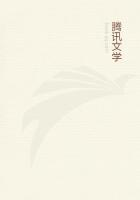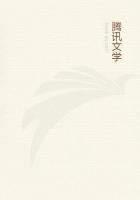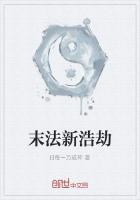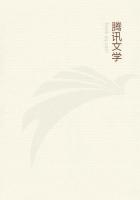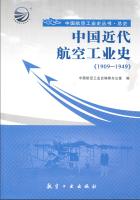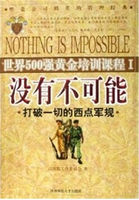The rooms of the harem reminded me of an English nursery rather than of a Mahometan paradise. One is apt to judge of a woman before one sees her by the air of elegance or coarseness with which she surrounds her home; I judged Osman's wives by this test, and condemned them both. But the strangest feature in Osman's character was his inextinguishable nationality. In vain they had brought him over the seas in early boyhood; in vain had he suffered captivity, conversion, circumcision; in vain they had passed him through fire in their Arabian campaigns, they could not cut away or burn out poor Osman's inborn love of all that was Scotch; in vain men called him Effendi; in vain he swept along in eastern robes; in vain the rival wives adorned his harem: the joy of his heart still plainly lay in this, that he had three shelves of books, and that the books were thoroughbred Scotch - the Edinburgh this, the Edinburgh that, and above all, I recollect, he prided himself upon the "Edinburgh Cabinet Library."It is said, that when a Mussulman finds himself attacked by the plague he goes and takes a bath. The couches on which the bathers recline would carry infection, according to the notions of the Europeans. Whenever, therefore, I took the bath at Cairo (except the first time of my doing so) Iavoided that part of the luxury which consists in being "put up to dry" upon a kind of bed.
The fear of the plague is its forerunner. It is likely enough that at the time of my seeing poor Osman the deadly taint was beginning to creep through his veins, but it was not till after I had left Cairo that he was visibly stricken.
He died.
As soon as I had seen all that I wanted to see in Cairo and in the neighbourhood I wished to make my escape from a city that lay under the terrible curse of the plague, but Mysseri fell ill, in consequence, I believe, of the hardships which he had been suffering in my service. After a while he recovered sufficiently to undertake a journey, but then there was some difficulty in procuring beasts of burthen, and it was not till the nineteenth day of my sojourn that I quitted the city.
During all this time the power of the plague was rapidly increasing. When I first arrived, it was said that the daily number of "accidents" by plague, out of a population of about two hundred thousand, did not exceed four or five hundred, but before I went away the deaths were reckoned at twelve hundred a day. I had no means of knowing whether the numbers (given out, as I believe they were, by officials) were at all correct, but I could not help knowing that from day to day the number of the dead was increasing. My quarters were in a street which was one of the chief thoroughfares of the city.
The funerals in Cairo take place between daybreak and noon, and as I was generally in my rooms during this part of the day, I could form some opinion as to the briskness of the plague. I don't mean this for a sly insinuation that I got up every morning with the sun. It was not so; but the funerals of most people in decent circumstances at Cairo are attended by singers and howlers, and the performances of these people woke me in the early morning, and prevented me from remaining in ignorance of what was going on in the street below.
These funerals were very simply conducted. The bier was a shallow wooden tray, carried upon a light and weak wooden frame. The tray had, in general, no lid, but the body was more or less hidden from view by a shawl or scarf. The whole was borne upon the shoulders of men, who contrived to cut along with their burthen at a great pace. Two or three singers generally preceded the bier; the howlers (who are paid for their vocal labours) followed after, and last of all came such of the dead man's friends and relations as could keep up with such a rapid procession; these, especially the women, would get terribly blown, and would straggle back into the rear; many were fairly "beaten off." I never observed any appearance of mourning in the mourners: the pace was too severe for any solemn affectation of grief.
When first I arrived at Cairo the funerals that daily passed under my windows were many, but still there were frequent and long intervals without a single howl. Every day, however (except one, when I fancied that I observed a diminution of funerals), these intervals became less frequent and shorter, and at last, the passing of the howlers from morn till noon was almost incessant. I believe that about one-half of the whole people was carried off by this visitation. The Orientals, however, have more quiet fortitude than Europeans under afflictions of this sort, and they never allow the plague to interfere with their religious usages. I rode one day round the great burial-ground. The tombs are strewed over a great expanse, among the vast mountains of rubbish (the accumulations of many centuries) which surround the city. The ground, unlike the Turkish "cities of the dead,"which are made so beautiful by their dark cypresses, has nothing to sweeten melancholy, nothing to mitigate the odiousness of death. Carnivorous beasts and birds possess the place by night, and now in the fair morning it was all alive with fresh comers - alive with dead. Yet at this very time, when the plague was raging so furiously, and on this very ground, which resounded so mournfully with the howls of arriving funerals, preparations were going on for the religious festival called the Kourban Bairam. Tents were pitched, and SWINGS HUNG FOR THE AMUSEMENT OF CHILDREN - a ghastly holiday; but the Mahometans take a pride, and a just pride, in following their ancient customs undisturbed by the shadow of death.
I did not hear, whilst I was at Cairo, that any prayer for a remission of the plague had been offered up in the mosques.
I believe that however frightful the ravages of the disease may be, the Mahometans refrain from approaching Heaven with their complaints until the plague has endured for a long space, and then at last they pray God, not that the plague may cease, but that it may go to another city!

